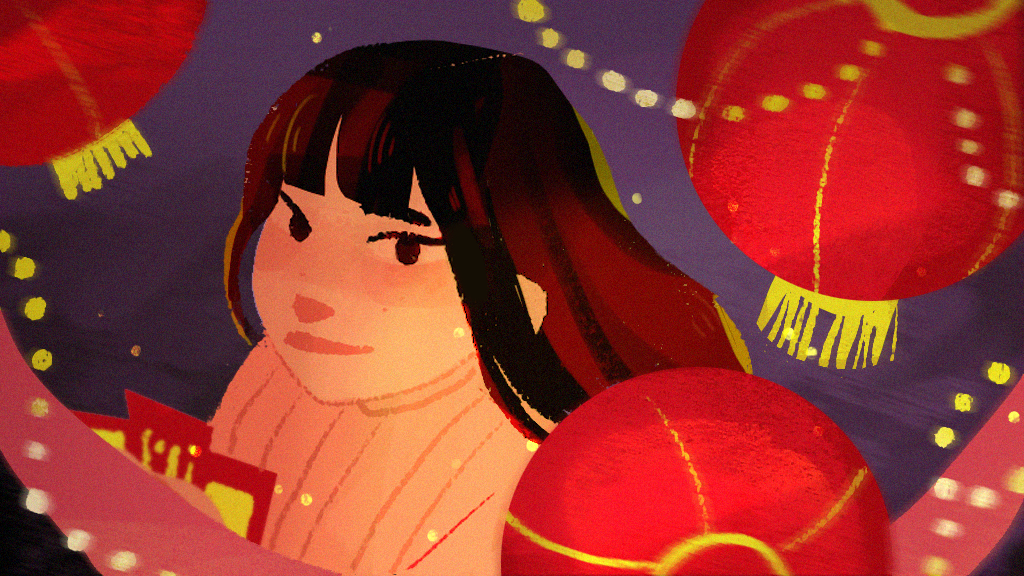Over 16,000 RIT students welcomed the new year on Jan. 1, 2018. However, over a billion people all over the world will also celebrate Lunar New Year on Feb. 16, 2018, with quite a few of them on our very own RIT campus. A growing number of RIT students whose families hail from countries who for thousands of years have followed the lunar calendar, will celebrate the Lunar New Year on campus and welcome the Year of the Dog.
As RIT continues to attract more international students, many from Asian countries such as China, Republic of Korea, Vietnam and Malaysia study on campus and bring with them a rich history of tradition and culture. According to RIT's International Student Services, there are currently 2,640 students from 98 different countries enrolled, including 502 students from China, 52 from the Republic of Korea, 39 from Taiwan, 34 from Vietnam and 31 from Malaysia.
Clubs such as the Asian Deaf Club, Asian Culture Society, Chinese Students and Scholars Association, Japanese Culture Association, Korean International Student Association, Malaysian Student Association and the Vietnamese Student Association on campus have gathered together to celebrate this important day of the year. According to the most recent RIT Institutional Research Enrollment Report, students who identify as Asian have increased steadily over the past five years from 840 in Fall 2013 to 1,228 in Fall 2017.
In addition, students who identify as multi-racial have increased from 334 to 515. During the same time frame, the number of students who identify as Black or African American has decreased from 726 to 675 and the number of students who identify as white have remained constant at around 9,000. Campus programs targeted at diverse student populations attract audiences from across the entire campus community. The College of Liberal Arts Department of Modern Languages and Cultures and the Asian Deaf Club have jointly sponsored a Lunar New Year celebration this year on Feb. 16 to take place at the Student Development Center. It will feature delicious Chinese food along with a dragon dance, a traditional dance performed in Chinese culture during festive celebrations.
Chinese Program Coordinator and Assistant Professor of Chinese Zhong Chen said his primary goal is to increase awareness of the Asian community on campus and celebrate the cultural traditions.
"You cannot separate language study and cultural activities."
Graduate student Peter Yeung, who serves as the Asian Deaf Club student advisor, is excited to be joining forces with the department this year.
“We wanted to collaborate with the Department of Modern Languages and Cultures to host the Lunar New Year festival to increase awareness of the National Technical Institute for the Deaf community as well as the large variety of Asian culture on RIT campus. We welcome the entire RIT community to get involved so the two communities will become a big (family) on campus,” Yeung said.
President of the Asian Deaf Club Philip Pham, a Human-Computer Interaction major at RIT, also commented on the growing diversity of the Asian community at RIT.
"We believe the celebration we have planned for the campus will be the most memorable."
According to Pham, celebrating these events not only helps international students combat homesickness, but also helps bring the community together.
"Most of our club members will miss the fireworks and both the dragon dance and lion dance the most, since they are the most popular events back home," Pham said. "We believe the celebration we have planned for the campus will be the most memorable and bring the (whole campus) community together. I know everyone will enjoy the colorful dragon dance performed by the Rochester Shaolin Training Academy."
Pham has arranged for authentic Chinese food from Tsingtao House, a popular local Chinese restaurant, to be served at the event as well.
“Much of the food traditionally served on the Lunar New Year have special meaning and symbolism," Pham explained. "For instance, dumplings and spring rolls symbolize wealth. Fish symbolizes an increase in prosperity. Tangerines symbolize fullness and noodles symbolize longevity. Tangyuan (sweet rice balls) symbolizes family togetherness. Each dish is meant to bring positivity throughout the year.”








